BART's Holiday Toy Drive collects more than 1,100 toys and $3,600 for Mission Food Hub families
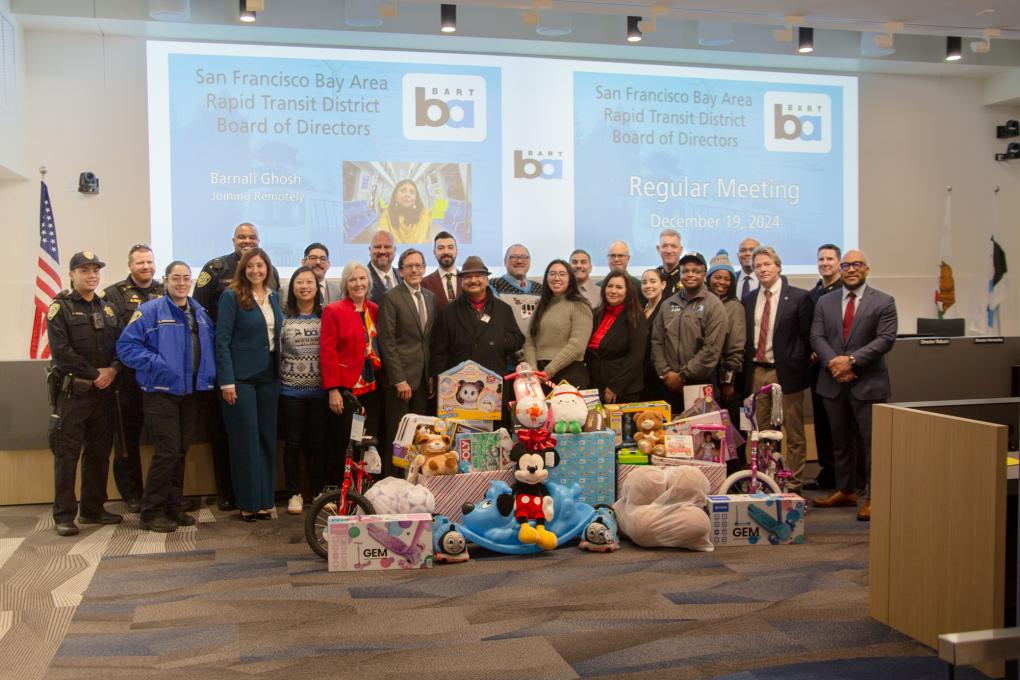
Members of the BART Board, BART executive staff, BART Police, OUTFRONT (BART's advertising partner), and CANA pose in front of some of the toys donated by BART for its 2024 Holiday Toy Drive.
Update: BART collected more than 1,100 toys and $3,600 in gift cards for Mission Food Hub families. More than 500 families attended the organization's recent toy giveaway, and each child was invited to select not just one toy, but two!
Each winter, BART hosts a holiday toy drive to give back to the diverse communities we serve. This year, we are honored to donate the toys to Mission Food Hub (MFH), a food bank that serves more than 300 families a week in San Francisco’s Mission District.
Mission Food Hub was founded in 2020 to provide nutritious, culturally appropriate groceries to families affected by the pandemic. Though the lockdown is over and most of the hub’s clients have returned to work, the need for groceries in the Mission’s Latino community remains, especially as the price of food continues to climb nationally.
Marisol and Otoniel Guillen's family of five relied on Mission Food Hub after the restaurant where Otoniel worked closed at the start of the pandemic. Now, Marisol, Otoniel, and their three children volunteer at the hub “to give back to the organization that gave to us,” said Marisol, speaking through a translator.
“This is my second family,” she said of the food hub. “It has been beautiful to see its impact on my friends, neighbors, and community.”
Mission Food Hub is under the umbrella of Cultura y Arte Nativa de las Americas (CANA), a 46-year-old organization whose objective is to educate people about the rich cultures and indigenous healing practices of the Americas and Caribbean. CANA is an outsize presence in the Mission – among other programs, it runs the San Francisco Lowrider Council, Somos Esenciales, Latin Jazz Youth Ensemble of San Francisco, and Carnaval San Francisco, the largest multicultural festival in California. BART has long been a Carnaval partner, and BART employees walk each year alongside the BARTmobile in the vibrant parade down 24th Street.
“We are grateful to have such a strong relationship with BART and to get to expand it with the toy drive this year,” said Rosine Garcia, Mission Food Hub Program Manager and Festival Coordinator for Carnaval. Many of CANA’s clients are transit-dependent and travel from across the city to access CANA events and opportunities.
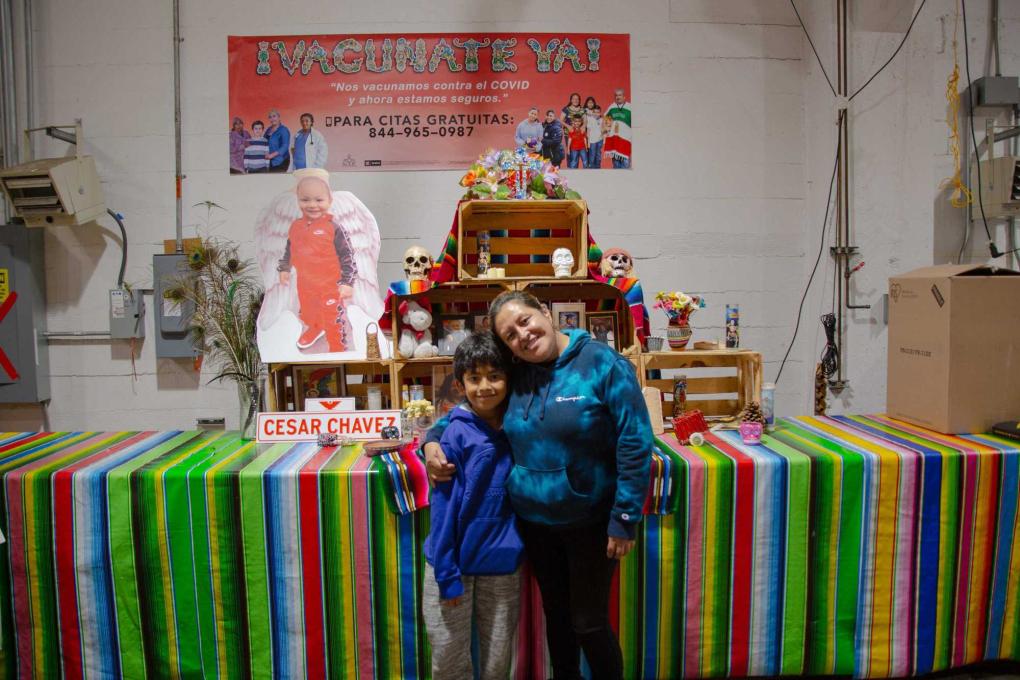
Marisol and her son in front of the altar at Mission Food Hub in San Francisco's Mission District.
BART’s annual Holiday Toy Drive is helmed by the Office of External Affairs and BART Police, who present the new, unwrapped toys and gift card donations in a joyful ceremony during the final BART Board meeting of the year. It’s tradition for the BART Board President to select the organization. Last year, BART employees donated more than 1,500 toys and $1,700 in gift cards to the Samoan Community Development Center of San Francisco (SCDC) and the Community Youth Center of San Francisco (CYC).
“Hardworking Mission families have been deeply affected by the pandemic, unstable housing, and business closures,” said BART Board President Bevan Dufty, who selected the recipient organization. “In a small, but important way, BART’s toy drive shows that we see these hardships and that we are fostering hope and keeping faith for Mission children during the holiday season and New Year. I want to thank everyone who made this possible through their time and generosity.”
Added Rodd Lee, BART Assistant General Manager of the Office of External Affairs: “It is an honor to spread joy to the youngest members of the Bay Area community with our toy drive. Connecting with the diverse youth who call the Bay Area home is an ongoing priority for BART, and the Holiday Toy Drive is a symbolic extension of this work."
Mission Food Hub does its toy giveaway a little differently. Staff display all the gifts on tables, and the children get to pick exactly what they want, without adult input.
“Toys are expensive, and many of our clients can’t afford them. For parents to come here and know their kid is getting a Christmas present means they don’t have to feel bad. It eases the parents’ pain,” said Rosine, adding that Christmas is an important holiday in Latino culture. “It’s about family and memories – that’s what the toys represent.”
Marisol, who immigrated from Guatemala more than twenty years ago, said there’s a conception among Latino immigrants in the U.S. that “you can’t complain here because it’s better than there.”
“It’s hard for parents to say no to buying a toy for their child,” she continued, “even when they really can’t afford one.”
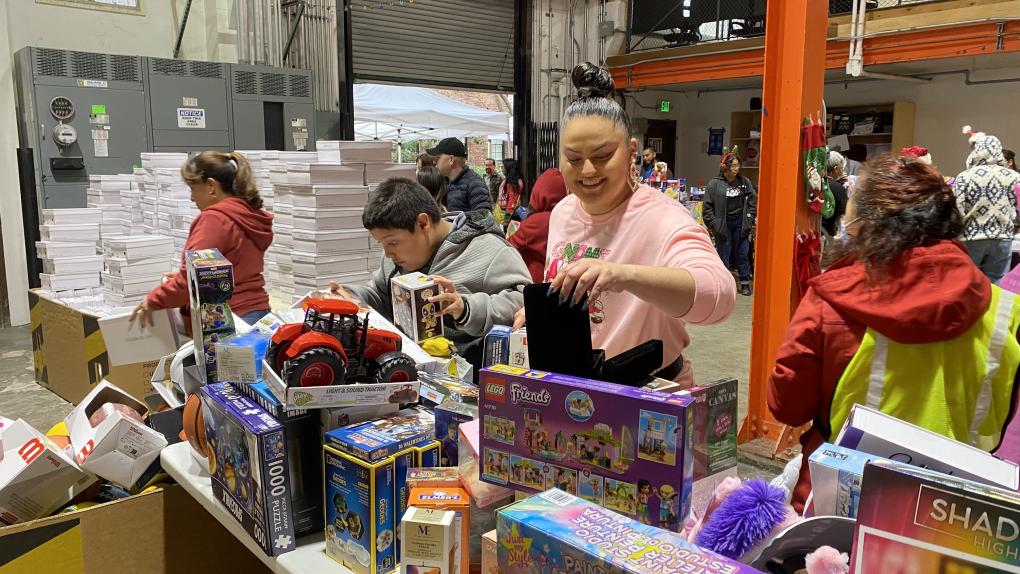
A photo from a previous year's toy giveaway at Mission Food Hub in San Francisco's Mission District.
During the pandemic, Marisol volunteered at Mission Food Hub, an opportunity that snowballed into her being hired as an ambassador for San Francisco’s Community Ambassadors Program, a safety and neighborhood engagement effort run by the city. CANA staff served as references.
"It’s not just me – my entire family has benefitted from CANA,” she said.
Marisol’s 14-year-old son, Emmanuel, is interested in business, so CANA gave him a space at 2024 Carnaval to sell soda, water, and chips. With the money he earned, he was able to purchase his own computer. Marisol said he cited CANA staff, including Rosine, in his recent school applications.
“I didn’t know that!” Rosine said through tears.
When CANA was founded by CEO Roberto Hernandez more than four decades ago, it was primarily an arts and cultural organization that sought to connect people to their Latino heritage and community. Since the pandemic, CANA has expanded that purview to include health in all its manifestations – mental, physical, financial, etc.
In February 2020, CANA pivoted after canceling Carnaval due to the onset of the pandemic. In those early months, COVID infections were concentrated among low-income Latino people with frontline jobs, who also experienced significantly higher mortality rates compared to other ethnic groups.
Roberto was scrambling to find a way to serve the community during the unprecedented and devastating time. The idea for the Mission Food Hub came to him a few weeks after an impactful phone call with a señora who was trying to apply for unemployment. The restaurant she worked for was paying her in cash, and since everything was off the books, she didn’t qualify for a scrap of governmental assistance.
So, Roberto asked her: “What’s the one thing I can help you with right now?” Her response: “Groceries.”
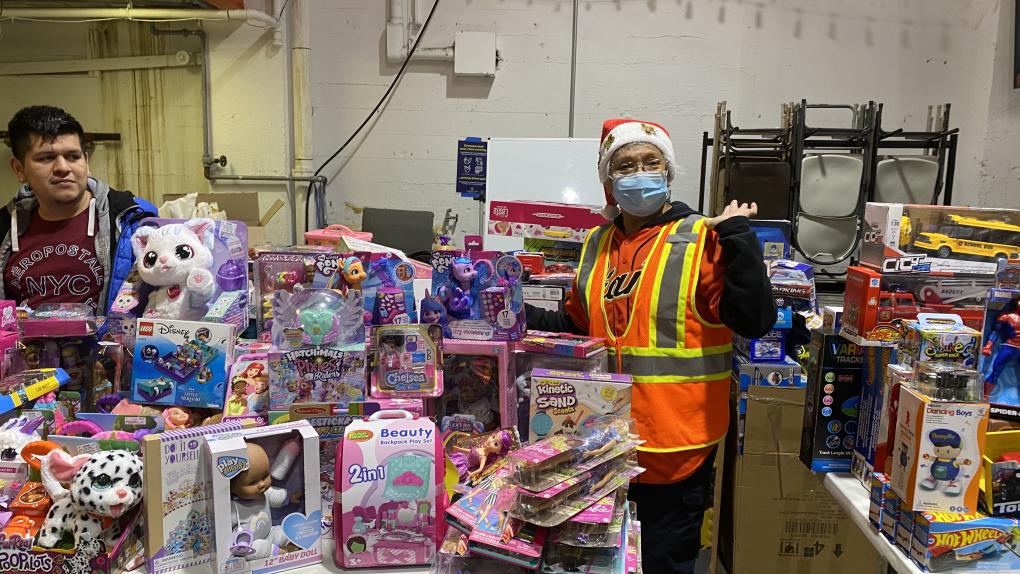
A photo from a previous year's toy giveaway at Mission Food Hub in San Francisco's Mission District.
In the days that followed, Roberto continued getting calls of that same ilk. The refrain: “We can't afford to buy groceries.”
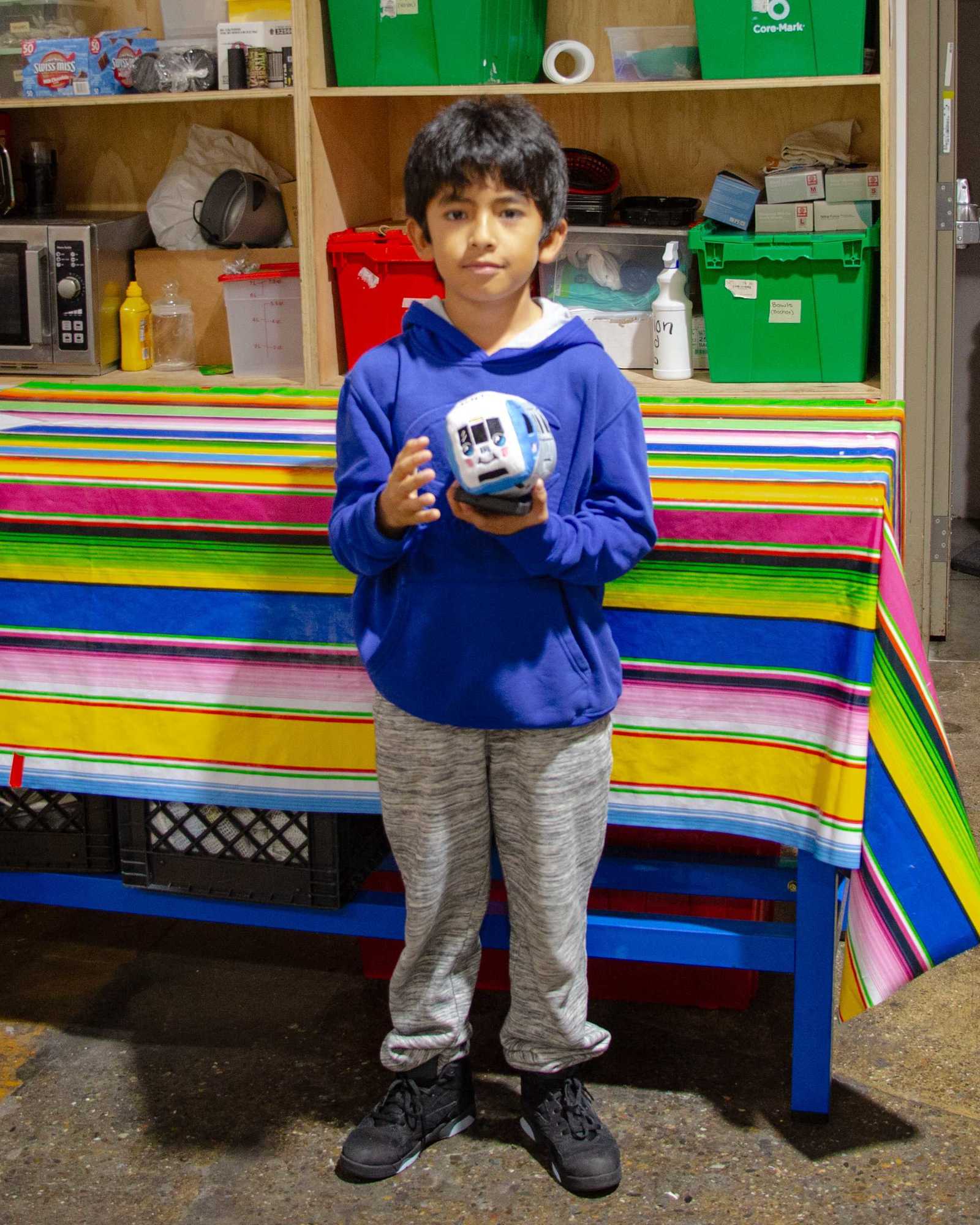
Roberto wanted to help as many people as he could, so he asked Carnaval sponsors if they could free up money from their festival contract to purchase food instead. Many obliged, and soon, dozens of pallets of food were headed to the ad hoc food bank Roberto was running from his garage.
There were so many incoming food donations – where would it all go?
Roberto started making calls and quickly struck a deal with the Mission Language and Vocational School on Alabama Street. They started with one school room, but quickly, the operation took over the building’s entire first floor. At the height of the pandemic, more than 9,000 families were picking up groceries from the food bank up to three times a week.
Mission Food Hub is still on that first floor, and it’s still serving up nutritious groceries to hundreds of families a week.
The umbrella organization, CANA, is growing too. Soon, it will open an Indigenous Peoples Cultural Arts Healing Center with the mission to preserve cultural roots and traditions for generations to come.
“Celebrating our cultural heritage is part of our healing mission, too,” Rosine said.